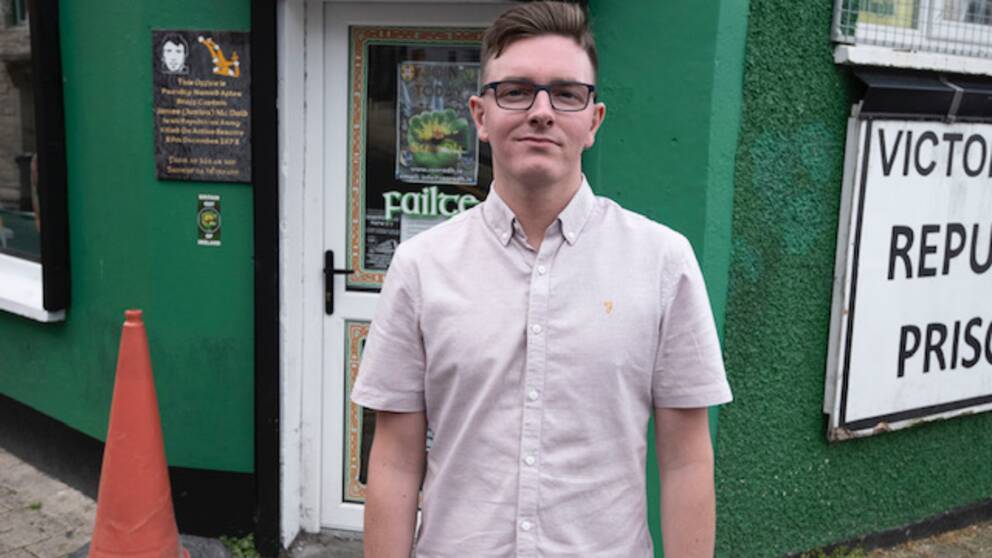For nearly 30 years, "The Troubles", an intense conflict in Northern Ireland between the Republican IRA - which wants the region to belong to Ireland - and the British police and military as well as Protestant loyalist groups continued.
Former Police Chief Ken Pennington was stationed at the border as a young police officer in the 1980s.
- Then the threat was so great that we only flew to the border by helicopter. We were threatened by ambushes, snipers and road bombs, he says.
Today it has been 21 years since the peace agreement in Northern Ireland. Pennington fears that the conflict may flare up again in a contractless Brexit, and that border controls will be attacked.
"The controls will be a target for armed Republican dissident groups," he says.
- The military can then potentially be taken in and we are back to "The Troubles" again.
Brexit concerns among young people
Today's young people have grown up with peace and today young Catholics and Protestants socialize to a greater extent. SVT meets a mixed group of friends at the age of 18 who have attended the same school.
- We have not had to experience the horrors and difficulties our parents experienced. Through the EU, we have received peace funding and our economy has flourished since the 1990s. This has led to young people being more equal and open to socializing with other backgrounds, says Hala Heenan.
Saoradh - New IRA's political voice?
There are Republican groups that refuse to put down weapons. The New IRA (New IRA) has recently made several attacks, and according to the Northern Ireland Police (PSNI), the left-wing revolutionary party Saoradh is the political voice of the New IRA.
Party spokesman Paddy Gallaghar denies that Saoradh would be linked to the New IRA. He says he understands why the New IRA exists, but does not want to answer whether his party supports the terrorist group.
If Brexit leads to a hard border between Ireland and Northern Ireland, it means new border barriers, infrastructure that has previously been attacked, says Gallaghar.
- I can only assume that any form of British installation at the border would be attacked again, if you look at history so to speak.
Prior to Brexit, the police have also received extra funding, but concerns remain.
"We are as prepared as we can be right now, even though there is still considerable uncertainty in several areas," the police spokesman wrote in an email.

